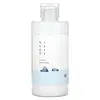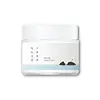What's inside
What's inside
 Key Ingredients
Key Ingredients

 Benefits
Benefits

 Concerns
Concerns

 Ingredients Side-by-side
Ingredients Side-by-side

Water
Skin ConditioningGlycerin
HumectantMacadamia Integrifolia Seed Oil
Skin Conditioning1,2-Hexanediol
Skin ConditioningPentylene Glycol
Skin ConditioningChondrus Crispus Extract
Skin ConditioningSaccharum Officinarum Extract
MoisturisingSea Water
HumectantHyaluronic Acid
HumectantHydrolyzed Hyaluronic Acid
HumectantSodium Hyaluronate
HumectantPanthenol
Skin ConditioningSqualane
EmollientButylene Glycol
HumectantPolyglyceryl-3 Methylglucose Distearate
EmulsifyingGlyceryl Stearate
EmollientHydrogenated Polydecene
EmollientHydroxyethyl Acrylate/Sodium Acryloyldimethyl Taurate Copolymer
Emulsion StabilisingJojoba Esters
EmollientCaprylyl Glycol
EmollientTromethamine
BufferingSodium Phytate
Tocopherol
AntioxidantSodium Carboxymethyl Beta-Glucan
CleansingEthylhexylglycerin
Skin ConditioningCetearyl Alcohol
EmollientCarbomer
Emulsion StabilisingWater, Glycerin, Macadamia Integrifolia Seed Oil, 1,2-Hexanediol, Pentylene Glycol, Chondrus Crispus Extract, Saccharum Officinarum Extract, Sea Water, Hyaluronic Acid, Hydrolyzed Hyaluronic Acid, Sodium Hyaluronate, Panthenol, Squalane, Butylene Glycol, Polyglyceryl-3 Methylglucose Distearate, Glyceryl Stearate, Hydrogenated Polydecene, Hydroxyethyl Acrylate/Sodium Acryloyldimethyl Taurate Copolymer, Jojoba Esters, Caprylyl Glycol, Tromethamine, Sodium Phytate, Tocopherol, Sodium Carboxymethyl Beta-Glucan, Ethylhexylglycerin, Cetearyl Alcohol, Carbomer
Water
Skin ConditioningGlycerin
HumectantCaprylic/Capric Triglyceride
MaskingDipropylene Glycol
HumectantHydrogenated Poly(C6-14 Olefin)
EmollientCetearyl Alcohol
EmollientMethyl Trimethicone
Skin Conditioning1,2-Hexanediol
Skin ConditioningCaprylyl Methicone
Skin ConditioningPhenyl Trimethicone
Skin ConditioningC12-16 Alcohols
EmollientButyrospermum Parkii Butter
Skin ConditioningSea Water
HumectantChondrus Crispus Extract
Skin ConditioningSaccharum Officinarum Extract
MoisturisingHyaluronic Acid
HumectantHydrolyzed Hyaluronic Acid
HumectantSodium Hyaluronate
HumectantGlyceryl Stearate Se
EmulsifyingCeramide AP
Skin ConditioningCeramide As
Skin ConditioningCeramide EOP
Skin ConditioningCeramide NP
Skin ConditioningCeramide Ns
Skin ConditioningPolymethylsilsesquioxane
Palmitic Acid
EmollientCetearyl Glucoside
EmulsifyingCetearyl Olivate
Sorbitan Olivate
EmulsifyingHydrogenated Lecithin
EmulsifyingCopernicia Cerifera Wax
Stearic Acid
CleansingAmmonium Acryloyldimethyltaurate/Vp Copolymer
Ethylhexylglycerin
Skin ConditioningGlyceryl Caprylate
EmollientAllantoin
Skin ConditioningPanthenol
Skin ConditioningButylene Glycol
HumectantBeta-Glucan
Skin ConditioningCholesterol
EmollientPhytosphingosine
Skin ConditioningDisodium EDTA
Water, Glycerin, Caprylic/Capric Triglyceride, Dipropylene Glycol, Hydrogenated Poly(C6-14 Olefin), Cetearyl Alcohol, Methyl Trimethicone, 1,2-Hexanediol, Caprylyl Methicone, Phenyl Trimethicone, C12-16 Alcohols, Butyrospermum Parkii Butter, Sea Water, Chondrus Crispus Extract, Saccharum Officinarum Extract, Hyaluronic Acid, Hydrolyzed Hyaluronic Acid, Sodium Hyaluronate, Glyceryl Stearate Se, Ceramide AP, Ceramide As, Ceramide EOP, Ceramide NP, Ceramide Ns, Polymethylsilsesquioxane, Palmitic Acid, Cetearyl Glucoside, Cetearyl Olivate, Sorbitan Olivate, Hydrogenated Lecithin, Copernicia Cerifera Wax, Stearic Acid, Ammonium Acryloyldimethyltaurate/Vp Copolymer, Ethylhexylglycerin, Glyceryl Caprylate, Allantoin, Panthenol, Butylene Glycol, Beta-Glucan, Cholesterol, Phytosphingosine, Disodium EDTA
 Reviews
Reviews

Ingredients Explained
These ingredients are found in both products.
Ingredients higher up in an ingredient list are typically present in a larger amount.
1,2-Hexanediol is a synthetic liquid and another multi-functional powerhouse.
It is a:
- Humectant, drawing moisture into the skin
- Emollient, helping to soften skin
- Solvent, dispersing and stabilizing formulas
- Preservative booster, enhancing the antimicrobial activity of other preservatives
Butylene Glycol (or BG) is used within cosmetic products for a few different reasons:
Overall, Butylene Glycol is a safe and well-rounded ingredient that works well with other ingredients.
Though this ingredient works well with most skin types, some people with sensitive skin may experience a reaction such as allergic rashes, closed comedones, or itchiness.
Learn more about Butylene GlycolCetearyl alcohol is a mixture of two fatty alcohols: cetyl alcohol and stearyl alcohol. It is mainly used as an emulsifier. Emulsifiers help prevent the separation of oils and products. Due to its composition, it can also be used to thicken a product or help create foam.
Cetearyl alcohol is an emollient. Emollients help soothe and hydrate the skin by trapping moisture.
Studies show Cetearyl alcohol is non-toxic and non-irritating. The FDA allows products labeled "alcohol-free" to have fatty alcohols.
This ingredient is usually derived from plant oils such as palm, vegetable, or coconut oils. There is debate on whether this ingredient will cause acne.
Due to the fatty acid base, this ingredient may not be Malassezia folliculitis safe.
Learn more about Cetearyl AlcoholChondrus Crispus Extract comes from a red algae native to the northern Atlantic coasts of Europe and North America. It helps hydrate the skin and is rich in antioxidants.
The antioxidants in chondrus crispus include lutein and zeaxanthin. Lutein has the ability to filter blue light from screens.
Other contents of chondrus crispus include polysaccharides, peptides, and amino acids. These help hydrate the skin.
What's the difference between algae and seaweed?
Algae is a broad term that includes seaweed. Not all algae is seaweed.
Ethylhexylglycerin (we can't pronounce this either) is commonly used as a preservative and skin softener. It is derived from glyceryl.
You might see Ethylhexylglycerin often paired with other preservatives such as phenoxyethanol. Ethylhexylglycerin has been found to increase the effectiveness of these other preservatives.
Glycerin is already naturally found in your skin. It helps moisturize and protect your skin.
A study from 2016 found glycerin to be more effective as a humectant than AHAs and hyaluronic acid.
As a humectant, it helps the skin stay hydrated by pulling moisture to your skin. The low molecular weight of glycerin allows it to pull moisture into the deeper layers of your skin.
Hydrated skin improves your skin barrier; Your skin barrier helps protect against irritants and bacteria.
Glycerin has also been found to have antimicrobial and antiviral properties. Due to these properties, glycerin is often used in wound and burn treatments.
In cosmetics, glycerin is usually derived from plants such as soybean or palm. However, it can also be sourced from animals, such as tallow or animal fat.
This ingredient is organic, colorless, odorless, and non-toxic.
Glycerin is the name for this ingredient in American English. British English uses Glycerol/Glycerine.
Learn more about GlycerinHyaluronic acid is naturally found in healthy skin. It is a humectant, meaning it draws moisture to your skin.
This ingredient helps hydrate, soothe, and protect the skin.
What makes hyaluronic acid so hydrating? It has the capacity to bind or hold large amounts of water.
Fun fact: It is already naturally found in our bodies, such as the fluids of our eyes and our joints.
Studies find this ingredient to have anti-inflammatory and anti-microbial properties. This can help speed up wound-healing.
Hyaluronic acid can be irritating if the molecule has a low-molecular weight, or if the molecules are small.
One study found low-molecular weight hyaluronic acid to be pro-inflammatory, meaning some people may experience irritation. This is because our bodies use hyaluronic acid in the wound-healing process to signal to our bodies, via irritation, that something needs healing.
The same study found high-molecular weight hyaluronic acid to be anti-inflammatory.
These are some other common types of Hyaluronic Acid:
Learn more about Hyaluronic AcidHydrolyzed Hyaluronic Acid is a form of hyaluronic acid. It is created by the hydrolysis of hyaluronic acid with a high molecular weight. Once created, Hydrolyzed Hyaluronic Acid has a low molecular weight.
Low molecular weight HA has been shown to hydrate and increase elasticity of the skin. Increasing elasticity is also associated with reduction of wrinkle depth.
One study found topical low molecular weight hyaluronic acid may be considered for the treatment of rosacea in the adult population. However, we always recommend speaking with a professional about your skin concerns.
Hyaluronic acids are a humectant. This means they draw moisture from the air. Hyaluronic acids help moisturize, soothe, and protect the skin.
Read more about other common forms of hyaluronic acid:
Learn more about Hydrolyzed Hyaluronic AcidPanthenol is a common ingredient that helps hydrate and soothe the skin. It is found naturally in our skin and hair.
There are two forms of panthenol: D and L.
D-panthenol is also known as dexpanthenol. Most cosmetics use dexpanthenol or a mixture of D and L-panthenol.
Panthenol is famous due to its ability to go deeper into the skin's layers. Using this ingredient has numerous pros (and no cons):
Like hyaluronic acid, panthenol is a humectant. Humectants are able to bind and hold large amounts of water to keep skin hydrated.
This ingredient works well for wound healing. It works by increasing tissue in the wound and helps close open wounds.
Once oxidized, panthenol converts to pantothenic acid. Panthothenic acid is found in all living cells.
This ingredient is also referred to as pro-vitamin B5.
Learn more about PanthenolThis ingredient is also called sugarcane extract. It is a moisturizing humectant and has skin soothing properties.
Similar to hyaluronic acid, sugarcane can attract moisture to your skin.
Glycolic acid is a derivative of sugarcane. While glycolic acid is an AHA with exfoliating properties, sugarcane is not an AHA.
A study from 2021 found the compounds in sugarcane extract to have antioxidant, antimicrobial, and anti-inflammatory activity. The study also suggests these compounds can inhibit skin ageing enzymes and promote collagen synthesis.
Learn more about Saccharum Officinarum ExtractSodium Hyaluronate is hyaluronic acid's salt form. It is commonly derived from the sodium salt of hyaluronic acid.
Like hyaluronic acid, it is great at holding water and acts as a humectant. This makes it a great skin hydrating ingredient.
Sodium Hyaluronate is naturally occurring in our bodies and is mostly found in eye fluid and joints.
These are some other common types of Hyaluronic Acid:
Learn more about Sodium HyaluronateWater. It's the most common cosmetic ingredient of all. You'll usually see it at the top of ingredient lists, meaning that it makes up the largest part of the product.
So why is it so popular? Water most often acts as a solvent - this means that it helps dissolve other ingredients into the formulation.
You'll also recognize water as that liquid we all need to stay alive. If you see this, drink a glass of water. Stay hydrated!
Learn more about Water